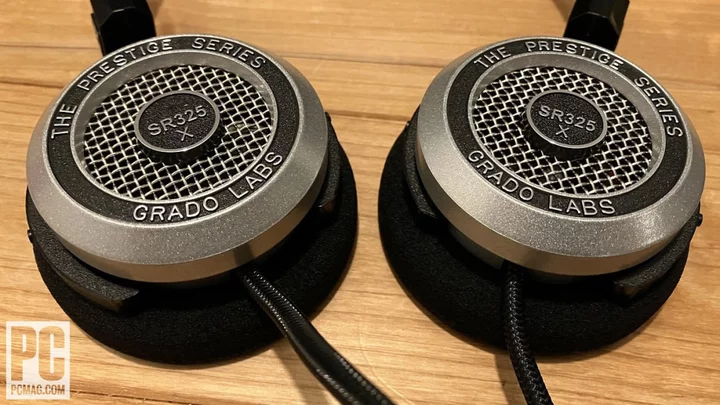Audiophile. Just using the word makes some of us cringe because it implies an air of exclusivity. But, in reality, it just means someone who takes high-fidelity audio seriously. You don't have to be the stereotypical sound snob to enjoy good audio, and if you're looking for quality headphones, what's wrong with understanding what makes them special?
The world of high-fidelity audio gear knows no limits. You can easily cobble together a list of the best headphones available for $5,000 and up (search term: electrostatic headphones). We're not going there. Instead, we're looking at the most audiophile-friendly headphones and earphones we've reviewed, which tend to cost substantially less. We've done our best to accommodate tight budgets, as well as throw in some of the top-shelf pairs if you're looking to splurge.
Our focus is on headphones with accurate sound signatures, though, even within this subgroup, there’s plenty of variation. Ultimately, the best headphones for you are the ones you like best—there's no empirical best (thank goodness) and you should experiment with multiple styles. Read our list of favorites to get an idea of where to start your search, and make sure to scroll down for some more buying tips.
What Are Audiophile Headphones?
Many people associate audiophile-level sound quality with a flat response. Headphones with this sound signature don't dramatically boost or cut various sub-ranges within the frequency range. This isn't a negative quality by any means; a flat response means accuracy, which is what most audiophiles want.
Of course, the term is quixotic—if it were actually possible to achieve a perfectly flat response, all the competing headphones and earphones that claim to offer this quality wouldn't sound so different from each other. Think of flat response as the ideal from which nearly every pair of headphones deviates.
To some, a truly flat response sounds clinical. And then there's the modern dilemma that faces some mix engineers: Do they mix for flat response-style speakers or for speakers that have more bass depth (which are much more common among consumers)? Engineers have traditionally used high-quality flat-response monitors for the bulk of work and then checked their mixes on more affordable speakers and headphones. But in recent years, the affordable stuff has become increasingly more powerful and capable of producing tremendous bass depth.
Sennheiser IE 200 (Credit: Tim Gideon)If I could point out one trend in headphones in the last decade or so, it would be the rise of bass response—many high-fidelity, expensive headphones, including the Etymotic ER-series earbuds, are available with slightly boosted bass. Several modern music genres also utilize digital (and some analog) instruments that push bass to depths that were previously less common now that more speakers and headphones can reproduce them.
It's something to keep in mind and be honest with yourself about. Do you really want a flat response or would you like something close to it, but with a little more bass depth? These days, you have several options and those who thumb their noses at you if you choose to enjoy a little more bass depth are neither right nor wrong. Especially with audiophile-level gear, the right choice depends on personal preference.
What Headphones Do Professionals Use?
The words "pro" or "professional" appear in the names of plenty of headphones and some earphones we review. The term is somewhat misleading—headphones for studio musicians or mix engineers don't need to be exclusive to those professionals. If you're looking for the most accurate sound signature you can afford, pro-level models are often your best bet.
There's a wide range of pro-level headphones to consider. Typical tracking headphones that musicians wear in the recording studio are usually affordable, though reference models engineers use to check their mixes can cost quite a bit more.
Most of these models use cables without an inline remote control or microphone. It's sometimes possible, depending on the model, to replace the cable with one that has an inline remote, but it might not be worth it because most phones don't have a headphone jack any longer. That trend and the fact that Bluetooth isn't yet lossless, has created a bit of a gap in the market because it makes top-end wired models really only viable for people with pro and stereo gear (or computers and tablets that still have headphone jacks).
Audiophile Earphones vs. Headphones
In the headphone realm, you have several styles to consider—circumaural (over-ears) or supra-aural (on-ears) for how they fit over or in your ears, and open-back (project audio outward from the enclosure to create a more natural spatial sound), semi-open, or closed (typically leak far less audio) for the earcup design.
And then, of course, there are earphones. Don't buy the flat-style models that sit against your ear and don't seal off the canal. They don't fit consistently and thus aren't likely to sound good. Canal-sealing in-ears, however, can offer top-notch audio with exceptional detail and superb bass depth.
No single style is innately superior to another, so it's worth considering them all.
Headphone Drivers Make a Difference
Different styles of drivers offer unique experiences. You are certain to hear arguments that one type is better than another, but none is empirically better overall, just different.
HiFiMan Sundara (Credit: Tim Gideon)That said, the planar magnetic driver revolution is in full effect: These lightweight, fast-response drivers produce superb levels of detail. This trend doesn't mean dynamic drivers and balanced armatures produce crappy sound though. Ultimately, if headphones sound amazing, the technology they use to get there is a somewhat secondary concern, assuming they don't drastically degrade the signal somehow.
Are Audiophile Headphones Worth It?
It's no secret that audiophile-quality headphones can cost more than regular ones, so you should make sure you're getting a pair that's worth your hard-earned cash. Yes, we know you like buying everything online now. But if you can visit a brick-and-mortar store that sells headphones and allows you to try them out in-store, it’s an invaluable experience. These physical retail spots are increasingly less common, however, so we do our best to cover the appearance and fit of every model we review.
If you need a little more flexibility in terms of price, design, or gym-friendliness, check out our lists of the best headphones overall, the best earphones, and the best workout earphones.
Once you find the perfect pair, head over to our guides on five easy tips to extend the life of your headphones and eight ways you're using them wrong.
4 ways you're using your headphones totally wrong — Clarification Please








